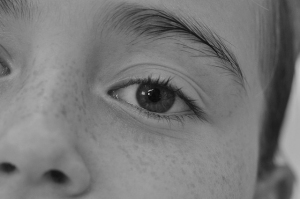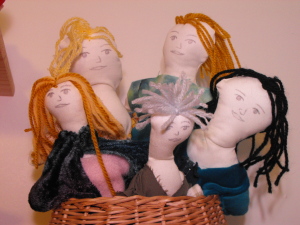For Parents |
For Professionals |
Parents – are you concerned about your child’s mental health?
Many parents and carers feel the same about their children. In September 2024, the Children’s Commissioner, Rachel de Souza, commented:
“Last week I was horrified to see the latest NHS statistics which showed that more than 500 children a day in England are being referred to mental health services for anxiety. This is more than double the rate than before the pandemic.”
She continued, “Official figures show in 2023-24 there were 204,526 new referrals of patients aged 17 and under where the primary cause was anxiety. In 2019-20, the year before Covid, the total was 98,953.” She also expressed her shock over persistently long waiting times for NHS treatment.
If your child is struggling, you won’t need this sort of headline-grabbing news to feel a sense of urgency and desperation.
 Children are rarely able to talk about their emotional problems. Instead, we have to watch for clues so that we can support them the best we can. Your child may be having difficulty with concentrating and achieving at school. Disruption to school attendance and even physical complaints can be other indicators. You may be concerned about behavioural difficulties, a common way for children to communicate their unhappiness. A child who becomes too quiet and conforming could be unintentionally hiding their suffering. You may also be aware of family issues such as family breakdown, and bereavement that is having an impact on your child.
Children are rarely able to talk about their emotional problems. Instead, we have to watch for clues so that we can support them the best we can. Your child may be having difficulty with concentrating and achieving at school. Disruption to school attendance and even physical complaints can be other indicators. You may be concerned about behavioural difficulties, a common way for children to communicate their unhappiness. A child who becomes too quiet and conforming could be unintentionally hiding their suffering. You may also be aware of family issues such as family breakdown, and bereavement that is having an impact on your child.
In addition to my foundation training in Adult Therapeutic Counselling, I’m qualified to counsel children by an internationally renowned establishment, The Institute for Arts in Therapy and Education. I’m able to offer your child a safe place to explore their difficulties using all kinds of play and art materials. I work with children from the age of 3 years old up in local schools and privately.
As well as ‘standard’ Child Counselling, another tool available is Video Interaction Guidance (VIG). I’m an accredited Video Interaction Guidance Practitioner and I’m offering this privately at substantially reduced cost. VIG is a great way to improve relationships and I’ve found it to be very effective even when family life seems very painful and strained. Read more on my VIG page.
How does counselling for children work?
Basics

Counselling in general is about forming a relationship with a trusted and trained person to explore life’s difficulties and meanings, finding strength and better ways of living. It’s the same for children although it usually involves a lot less abstract talking and more ‘playing out’ of these themes. I provide a place for the child to be with me and think about these things while we use creative materials and play with toys. Pens, paint, crayons, clay, playdoh, bubbles, balloons, toys, games, stories, poems, music, songs, puppets, dance and ‘pretend’ often feature. Mostly the child leads, setting the pace and agenda and I’m supporting, focussing, helping them to name and explore emotions and sometimes offering understanding of situations that may be perplexing for them.
Confidentiality is crucially important to the child to feel comfortable with me and this is agreed with the child and the parents or carers at the start. I will keep confidence unless I become aware that there’s a serious risk to the child or another person. I’m then legally required to take action to safe guard them, as schools do. I also share details anonymously with my supervisor who is a senior, experienced child psychotherapist and works to support me to do my best for your child.
As well as ‘standard’ Child Counselling, another tool available is Video Interaction Guidance (VIG). VIG is a great way to improve relationships and I’ve found it to be very effective even when family life seems very painful and strained. Read more on my VIG page.
Initial assessment with the parent or carer
To begin, I will invite you, as parents and carers, to meet me for an initial assessment. We will talk about the difficulties your child is experiencing and I will also take a thorough history. If we agree that counselling would be beneficial for your child, we will sign a formal agreement. At this stage we may have an idea about how long the counselling will be for or we can keep this open.
Initial session with the child
I will then arrange to have the first session with you and your child. I will explore with them what we do in counselling and how it works. I will need to secure their personal consent to proceed. This may be a verbal or written agreement, depending on their age.
Keeping you informed
Depending on your child’s age, I may suggest meeting you, as the parents or carers, regularly. This is a chance for you to let me know how things are progressing outside of the counselling. Your child may also give permission for me to share certain aspects of our work together with you. Otherwise I will be limited to mentioning the main themes of the work and how he or she seems to be settling in. Obviously, they can choose to tell you other news themselves if they want to.
Reviewing Progress
We will review how things are going after six weeks and at other intervals as we progress, although I welcome feedback at any point. Any family news, changes in your child’s mood or behaviour are all important aspects to share together.
Ending therapy
We will come to an agreement as to when counselling will end, in consultation with you and your child. It’s always best to work towards the ending with care and gradually, over a number of weeks.
If you have other questions then please contact me to arrange a chat over the phone.
I look forward to getting to know you and your child.
Professionals
I also work with child clients and parent-child dyads referred to me by schools and children’s services. I have undertaken further training in adoption issues and I often work with Hampshire and other County councils to support fostering, special guardianships and adoption, helping families struggling with the challenges they face. See above for how child counselling could work for the children and families you know. This can include Video Interaction Guidance (VIG). Read more on my VIG page for this.